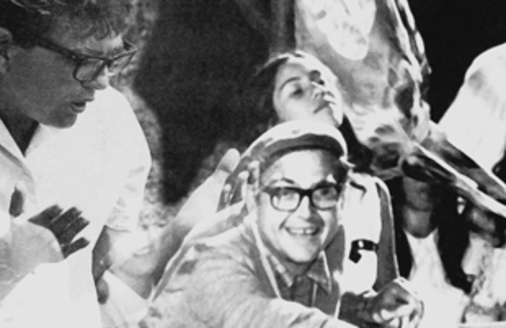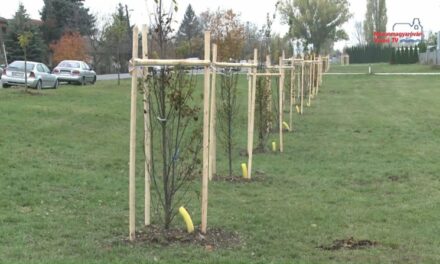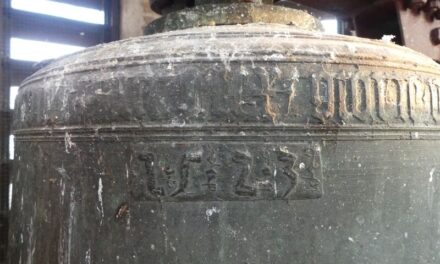An Italian-Hungarian series of events pays tribute to Imre Balázs Gyöngyössy, Béla Award winner, Merited Artist, Cinema per la Pace Italian lifetime achievement award, German Grimme Award and Oscar-nominated filmmaker, writer, poet, dramatist and screenwriter.
On the occasion of the ninetieth anniversary of his birth, the National Film Institute has fully digitized, renovated and will present the films of the charismatic poet-filmmaker in retrospective series in September and October 2021, Male Image, Virágásárnap, Neztelen ou, Boys that Become Deer, The Waiters, Two Decisions, the works entitled Töredék about life, Job's rebellion, Tell your sons and the Exiles. Two Italian and eight Hungarian cities await those interested with film screenings, audience meetings, book presentations, literary evenings and poster exhibitions.
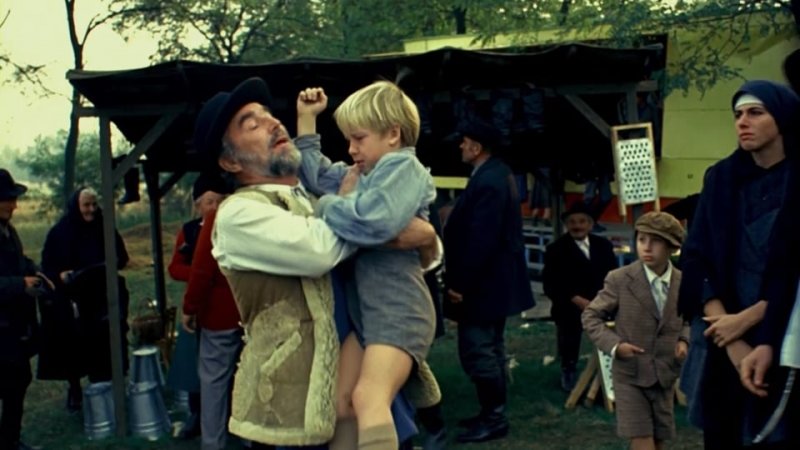
Photo from Job's Rebellion. from a movie. Source: filmarchiv.hu
Imre Gyöngyössy was born in 1930 in Pécs. The myth, the archaic peasant world, the ancient rites, the experience of man living in harmony with nature and community accompanied him throughout his life. Italy's intellectual and cultural heritage has become an inexhaustible source and inspiration. In 1951, he was arrested as a university student majoring in Italian. From the end of the seventies, together with his co-creators, Barna Kabay and Katalin Petényi, he made films on different continents about exiles, the stateless, and those deprived of their human rights. Magical realism, a symbiosis of vision and reality, and poetically expressive images conveyed Imre Gyöngyössy's message for more than three decades about the vulnerable people of history, about those nameless heroes who resist violence with their inner energy and moral attitude.
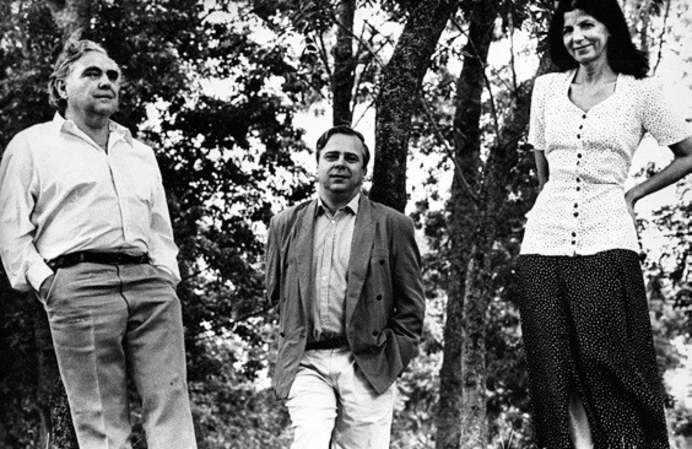
Imre Gyöngyössy, Barna Kabay and Katalin Petényi at the La Rochelle film festival (1993) Photo: Archive
Foreign critics greeted him with the greatest acclaim, Italian newspapers referred to him as the "Hungarian Pasolini". In his feature films and documentaries, he explored the limits and limitlessness of freedom. He was interested in birth, death and rebirth, the action poetry of myths, basic human relationships, friendship, love, mother, son and siblings meeting each other, people awakening to self-awareness, history and the personal drama of each person. His films were screened with great success at the world's most prestigious international film festivals and were awarded prizes. His poems were published only in Italian during his lifetime. A series of Italian-Hungarian film screenings with the support of the National Film Institute, with the cooperation of the Film Archive, organized by Projekt Film Kft. and the Hungarian Academy of Rome.
about the films and screening times here.
In Balatonfüred, between September 16 and 18, the Quasimodo Poetry Competition will be held in his memory, and the book Stigma will be presented, and his poem film will be screened.
Source: VEOL.hu / filmarchiv.hu
Featured photo: filmarchiv.hu

